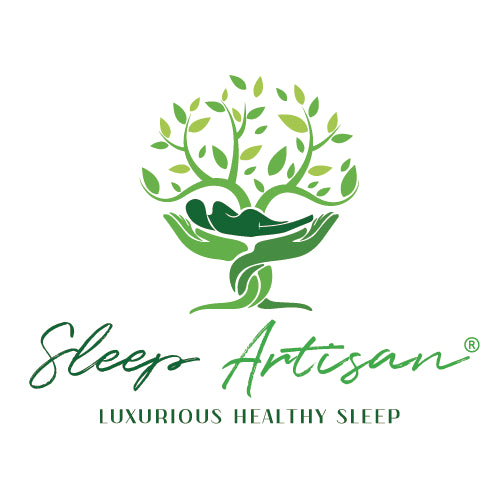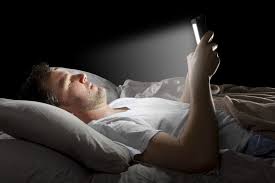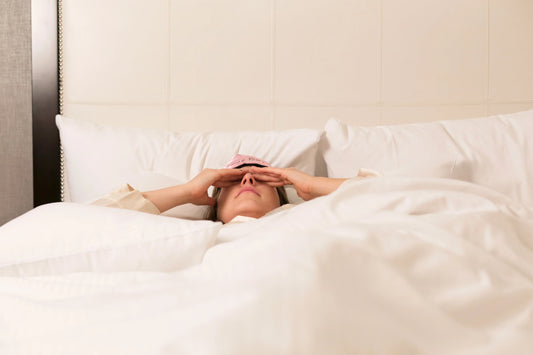In today’s health-conscious world, sleep tracking has become a popular tool to monitor how well we rest and recover. With smartwatches and fitness trackers providing detailed insights into our sleep patterns, many people are now turning to this data to optimize their daily performance and recovery. However, as beneficial as sleep tracking can be, there are potential downsides, especially when it becomes an obsession.
In this post, we’ll explore the pros and cons of sleep tracking and how it relates to daily recovery, helping you find the right balance for better health.
The Pros of Sleep Tracking for Recovery
-
Awareness of Sleep Patterns: Sleep trackers give users a detailed look at their nightly routines. They can show how long you sleep, how much time you spend in different sleep stages (light, deep, and REM), and even track disturbances. This awareness can be eye-opening, especially for those who may not realize that they're not getting the recommended 7–9 hours of sleep per night.
-
Motivation to Improve Sleep Habits: Seeing your sleep data regularly can be a powerful motivator for improving your habits. Maybe you realize that staying up late to scroll on your phone is impacting your ability to enter deep sleep, or perhaps you've noticed that going to bed earlier results in better rest. By tracking your progress, you’re more likely to stick to healthy routines like consistent bedtimes, which leads to better recovery from daily stress.
-
Tracking Recovery Progress: Many sleep trackers are integrated into broader health and fitness platforms, offering metrics like heart rate variability (HRV), which can tell you how well your body is recovering from exercise or stress. This data can be extremely useful for athletes or anyone looking to optimize physical and mental performance by adjusting their routine based on how well they’ve recovered.
-
Identifying Sleep Disruptors: Do you tend to wake up multiple times a night? Are you restless after a late dinner or a few drinks? Sleep tracking can help you identify patterns and behaviors that negatively affect your rest. Once you know the causes of your disruptions, you can make changes that lead to more restorative sleep and better overall recovery.

-
Objective Feedback: We all have days when we wake up feeling sluggish, but it’s not always easy to pinpoint why. Sleep trackers can provide objective feedback that helps connect the dots between your sleep habits and your daily performance, giving you a more complete picture of your recovery process.
The Cons of Sleep Tracking for Recovery
-
Inaccuracy of Devices: While sleep trackers offer useful insights, they’re not always accurate, particularly when it comes to measuring sleep stages. These devices often rely on movement and heart rate data, which can lead to errors. This can result in misleading information about how well you’re sleeping, potentially causing unnecessary stress if the data doesn’t match how you feel.
-
Orthosomnia and Sleep Anxiety: In some cases, an obsession with tracking and perfecting sleep can lead to a condition known as orthosomnia—anxiety about achieving "perfect" sleep. Ironically, this worry can actually worsen sleep quality, turning what was meant to be a helpful tool into a source of stress. When sleep becomes a numbers game, you may find yourself more focused on the data than on how refreshed you feel in the morning.
-
Neglecting How You Feel: Sleep trackers can show a lot of data, but they can’t tell you how you feel. Sometimes the data suggests you had a good night’s sleep, but you still wake up feeling tired. On the flip side, you might feel well-rested, yet the tracker indicates you had a restless night. Relying too heavily on the data can lead to confusion and a disconnect from what your body is really telling you.
-
Overemphasis on Quantity Over Quality: Many people focus on the number of hours they sleep rather than the quality of their rest. Simply getting 8 hours of sleep isn’t enough if the quality of that sleep isn’t high. Restful, deep sleep is crucial for proper recovery, and focusing solely on the quantity can distract from this. Sleep trackers often don’t account for how restful sleep actually feels, which is a critical component of true recovery.
-
Over-Reliance on Technology: As helpful as sleep tracking devices can be, there’s a risk of becoming too dependent on them. Some people feel anxious if they don’t have their device to "validate" their sleep, which can interfere with trusting your body’s natural rhythms. Remember, your body knows what it needs to recover, and constantly checking sleep data can sometimes get in the way of that.
Finding the Right Balance for Recovery
While sleep tracking offers valuable insights into your sleep habits, it’s important to use these devices as a tool, not a crutch. The ultimate goal is to feel rested, refreshed, and recovered, not just to hit a specific number of hours or optimize your sleep stages.
To strike the right balance:
- Pay attention to how you feel when you wake up and throughout the day.
- Use sleep data as a guide, but don’t let it dominate your understanding of rest.
- Focus on sleep quality through good sleep hygiene: consistent bedtimes, a cool and quiet environment, and limiting screen time before bed.
When sleep tracking is approached with a balanced mindset, it can be a powerful tool for improving your daily recovery and overall health. But remember, it’s just one piece of the puzzle—how you feel in your body and mind should always come first.
By taking a mindful approach to sleep tracking, you can improve your recovery, optimize your performance, and wake up feeling truly refreshed.
What’s your experience with sleep tracking? Let us know in the comments!




